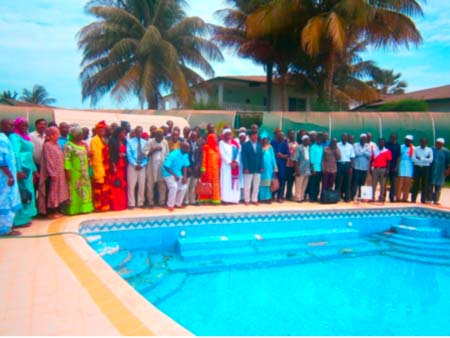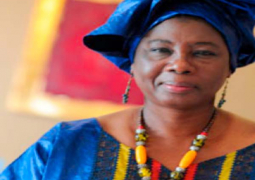
The workshop, organised by FAO and the Gambia government with funding from GEF, was held at the Paradise Suites Hotel.
The workshop was to kick-start a process for developing a full project proposal that will be submitted to GEF by the end of January 2016.
The objectives include introduction of draft project components, expected outcomes, and the proposed work plan prioritized during the PIF preparation stage. It was also held to enhance stakeholders’ consultation and seek support, inputs and feedback from them.
The expected outputs will be a common initial consensus among all participants on the preparation, design, objectives, outputs, and stakeholders’ recommendation for project design, as well as a detailed work plan and a road map with specific activities, milestone and timelines.
In her speech, the deputy FAO assistant representative, Mariatou Njie, said the project, “Adapting Agriculture to climate change in The Gambia” aims to support implementation of immediate adaptation priorities in the agriculture sector identified in the National Adaptation Programme for Action (NAPA).
The objective was to promote sustainable and diversified livelihood strategies for reducing the impact of climate variability and change in the agriculture and livestock sector, she said.
According to her, the objective of the workshop was to engage all stakeholders from the onset for preparation of activities to kick-start the process.
She said the project preparation activities include multi-stakeholder consultations, PPG workshops, stakeholder meetings, primary and secondary data collection, capacity analysis and prioritization of specific technical, among other, designs.
She noted that the activities would contribute to awareness-raising on the project, and ensure project ownership and political support to maximize designed synergies and buy-in during the project development phase.
She also said climate change and food security is one of the major concerns topping the international agenda.
The United Nations Framework Convention on Climate Change (UNFCCC) provides that all parties must formulate and implement national or regional programmes containing measures to facilitate adequate to climate change, she stated.
According to her, adapting agriculture to climate change in The Gambia project was consistent with the Gambia National Agriculture Investment Plan 2011-2015 GNAIP, which was aligned fully with the national goals of Vision 2020.
The aim was to promote sustainable and diversified livelihood strategies for reducing the impacts of climate variability in the agriculture and livestock sector, she said.
In his opening statement, the permanent secretary at the Ministry of Agriculture, Ousman Jammeh, said the inception workshop was part of government’s continuous effort to sustainably improve agricultural production and productivity in the country, in the face of global threat from climate change.
According to PS Jammeh, adapting to climate change is a very important component of the national agricultural development strategy.
It was in this vein that the Gambia government requested for support from FAO to implement the immediate adaptation priorities in the agriculture sector identified in the National Adaptation Programmes for Action (NAPA), he said.
“In response to our request, FAO in partnership with relevant government ministries worked very hard to secure a grant from GEF to formulate a full-seized project on adapting agriculture to climate change in The Gambia,” PS Jammeh said.
According to the PS, the project development was aiming at intensive policy and institutional capacity development for various government institutions.
However, he added, the target was for institutions implicated in the ‘not-business-as-usual’ interventions but in innovative actions and practices that explicitly address climate change concern, building adaptive capacity and increasing resilience.
The Executive Director of the National Environment Agency, Ndey Sireng Bakurin, said the degradation of the natural environment has serious economic and social consequences.
She
also indicated that The Gambia has benefited from various GEF funding cycles up
to this stage, and has recorded success in the implementation of all projects.



